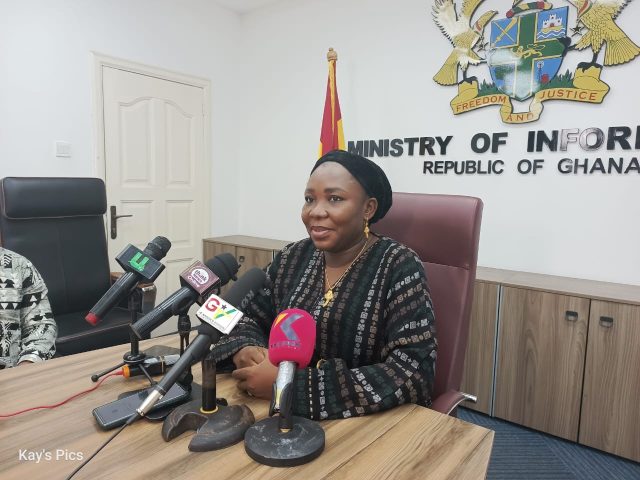In a recent interview, the Minister for Information, Honourable Fatimatu Abubakar emphasized the significance of the constitutionally enshrined right to information and the establishment of key regulatory bodies, such as the National Media Commission (NMC) and the National Communications Authority (NCA).
She noted that while these institutions were established by the constitution, subsequent legislation is necessary to enhance their powers and effectiveness.
The Minister pointed out the inconsistencies in the current broadcasting regime, where different acts govern various aspects of media, leading to a lack of uniform application.
In an interview, she argued that the new broadcasting bill, if passed into law, would address these issues by providing clarity on the roles of key institutions and ensuring efficient operation.
The bill also aims to regulate content, particularly to protect children from harmful material.
Moreover, the Minister highlighted the impact of the Right to Information (RTI) Act, which has empowered media practitioners to demand information as a right.
“We identified two main factors contributing to the spread of misinformation: the absence of accurate information and the rapid dissemination of disinformation,” said Hon. Abubakar.
“Our six-point strategy addresses these issues by focusing on science, social issues, factual political reporting, and policy development.”
The proposed measures include enhancing fact-checking mechanisms and adopting a proactive approach to information dissemination.
“We must fill the information vacuum with accurate facts to prevent falsehoods and rumors from taking hold,” Hon. Abubakar said.
She praised the recruitment of over 350 RTI officers to process information requests and expressed hope for further expansion to fully implement the act.
Addressing the national action plan, the Minister mentioned that it identifies 64 key stakeholders and outlines strategies for addressing misinformation, enhancing fact-checking, and maintaining ethical standards.
She expressed confidence that the action plan, once approved, along with the broadcasting bill, would significantly improve the media landscape.
Finally, the Minister urged parliament to prioritize the bill, reflecting the needs and inputs of media stakeholders.
She assured that the Ministry of Information would continue advocating for policies that enhance media quality and promised a stakeholder briefing once the action plan is approved.
Affirmative Action Bill
The Affirmative Action Bill has been passed into law towards gender parity.
The bill’s passage is a culmination of years of advocacy and dedication from various stakeholders, including organizations like Ubantu for Development, which has been promoting the affirmative action agenda since 2010. Despite facing setbacks and demands for amendments, the ministers’ fervent support and public advocacy ensured the bill’s success.
The new law aims to address gender biases and create parity in leadership and representation, reflecting the population dynamics of Ghana, where half of the population are women. President Nana Addo Dankwa Akufo-Addo’s unwavering support and advocacy for gender parity have been instrumental in the passage of laws promoting gender equity.
This landmark legislation sets a legal framework for addressing gender disparities and promoting equal representation across various sectors. Ghana’s passage of the Affirmative Action Bill is a significant step towards a more inclusive and equitable society.















